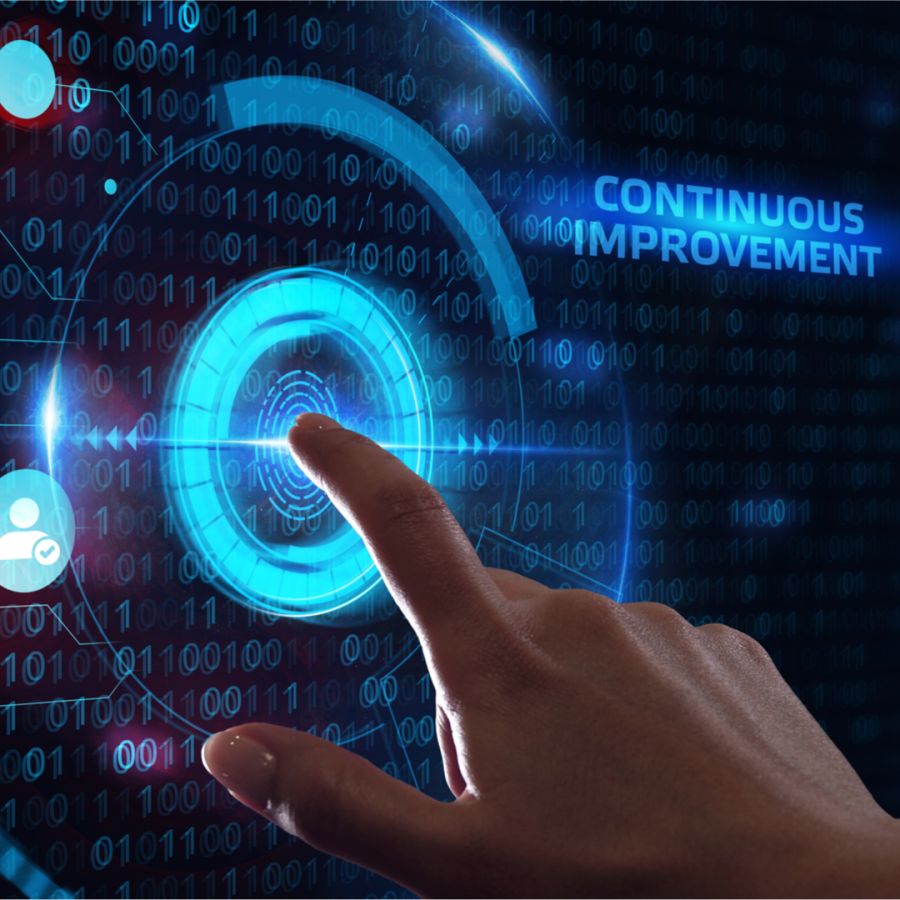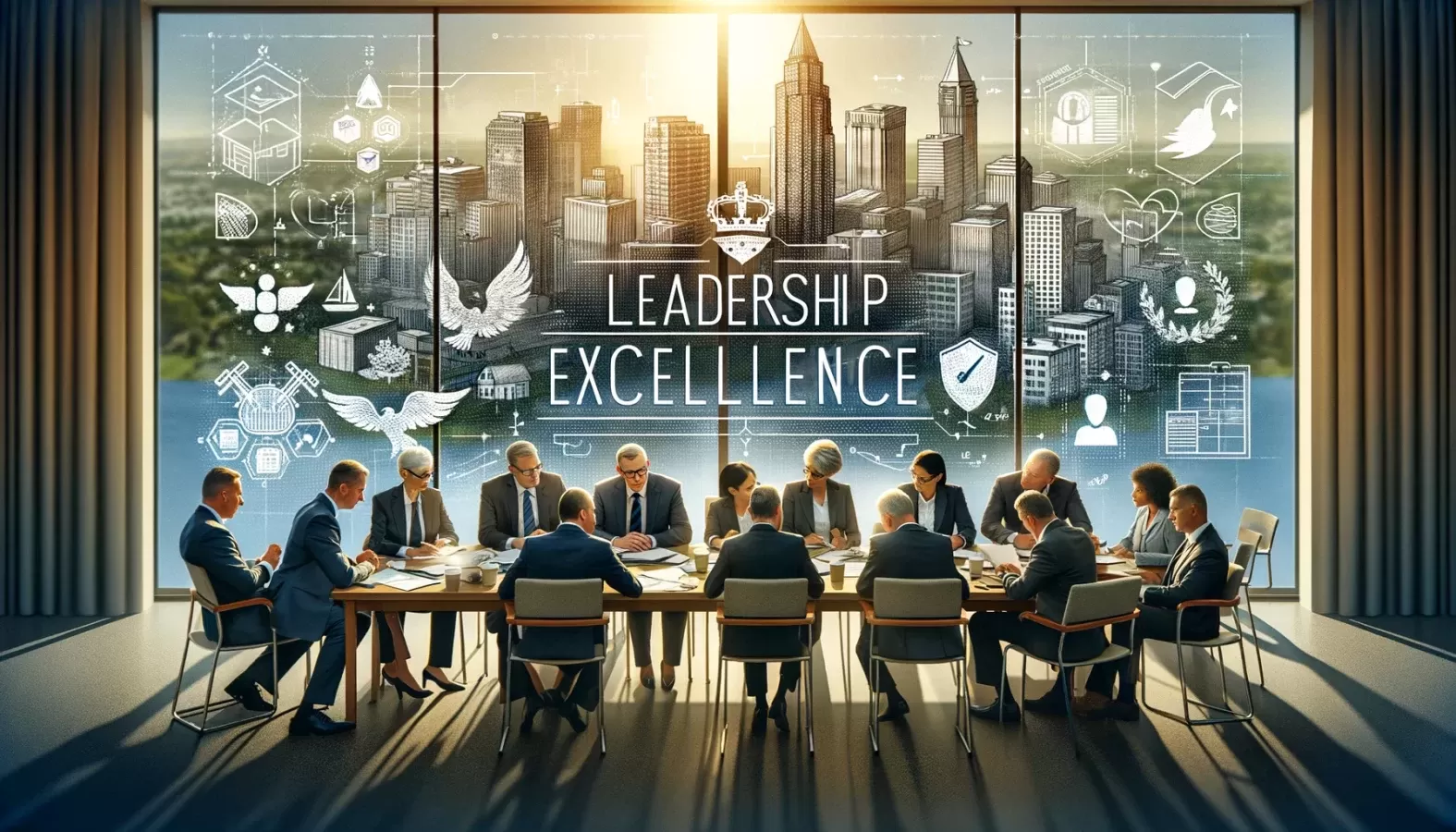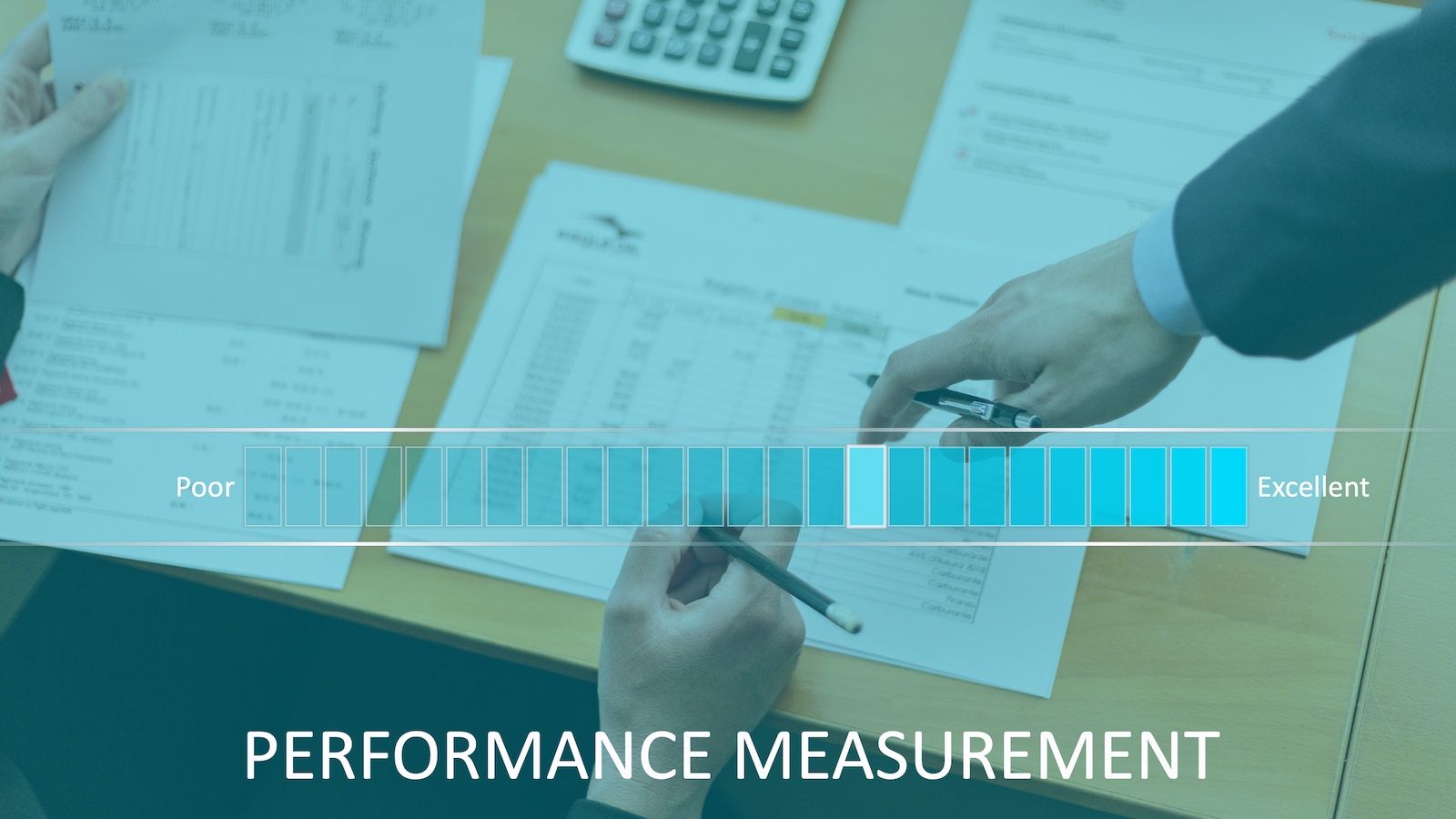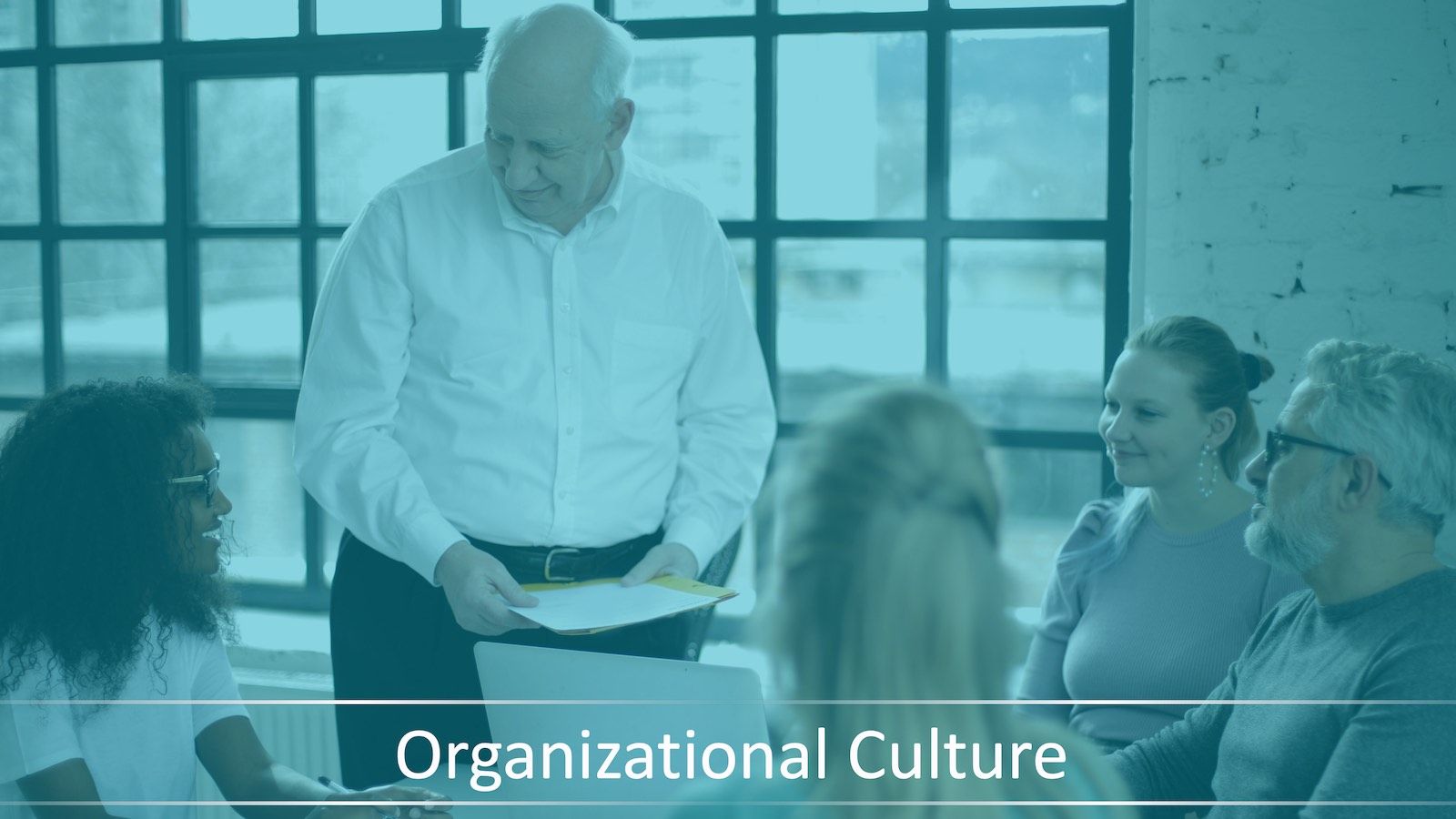Local Government Consulting

-
Value to the Customer
-
Collaboration Between Departments
-
Maximize Productivity
-
Eliminate Waste
-
Reduce Cost
-
Quality Control
Improving quality and efficiency of service delivery by local governments is a variable and sometimes complex process. Efforts to advance processes can be obstructed by the expectations of staff, demands of citizens and/or divergent agendas of elected officials. Well-intentioned actions could produce little actual improvement.
A Continuous Improvement Culture is not created rapidly, and many local governments are purposefully built around stability which could invite a resistance to change. The best place to begin will be dependent on the organization, there are some resources below to consider.
Resources to Get Started
Contact us to
Learn More
News Related to Continuous Improvement

Leadership Excellence in Local Government
A Guide for Senior Executives
In the intricate dance of local government leadership, city managers, county administrators, and their executive teams stand at the critical nexus between visionary change and the steadfast values of public service. As architects of community destiny and custodians of public trust, they navigate a landscape where innovation intersects with tradition, where every decision ripples through the fabric of the communities they serve. This role demands not only a profound understanding of policy and organizational management but also a relentless dedication to ethical leadership, empathy, and the agility to adapt to ever-evolving challenges.
Leadership at this echelon is less about wielding authority and more about fostering an environment that propels growth, cultivates open dialogue, and aligns the leadership team with the organization’s overarching mission. The mantle carried by these leaders is one of both privilege and profound responsibility: to steer communities towards a future that balances innovation with integrity, inclusivity with accountability. In embracing these tenets of leadership excellence, they act as the pivotal force driving their teams and communities toward unparalleled success.
Defining Leadership Purpose
At the heart of effective local government leadership lies a clear and compelling sense of purpose. Senior executives, by defining and embedding this core mission within every facet of their organization, provide a beacon that guides strategic decision-making, policy formulation, and daily operations. This purpose, or ‘why’, becomes the foundation upon which trust is built and leadership is exercised.
“People don’t buy WHAT you do, they buy WHY you do it. We are drawn to leaders and organizations that are good at communicating what they believe. Their ability to make us feel like we belong, to make us feel special, safe and not alone is part of what gives them the ability to inspire us.” – Simon Sinek
It is what aligns the efforts of diverse teams, ensuring that from the strategic objectives set by top-tier leadership to the execution of day-to-day tasks, there is coherence and unity in pursuit of common goals. A well-articulated purpose not only motivates and inspires but also serves as a critical tool in navigating the complexities and challenges inherent in public service.
Fostering a Culture of Psychological Safety
Creating a culture of psychological safety and support is crucial for innovation and effective problem-solving at the executive level of local government. This culture enables team members to express ideas, raise concerns, and propose solutions without fear of reprisal or ridicule. For senior leaders, fostering such an environment means encouraging open communication, showing vulnerability, and demonstrating an unwavering support for their teams.
“Psychological safety is not about being nice or lowering performance standards, it’s about giving candid feedback, openly admitting mistakes, and learning from them.”
Amy C. Edmondson
This approach not only enhances team cohesion and morale but also empowers individuals to take initiative and contribute their best work. In an atmosphere where psychological safety prevails, the executive leadership team becomes more agile, resilient, and capable of tackling the complex challenges of governance with creativity and confidence.
Adaptability and Continuous Improvement
The landscape of local government is ever-changing, with new challenges and opportunities emerging at a rapid pace. Adaptability and a commitment to continuous improvement are therefore essential qualities for senior executives. These leaders must be adept at navigating shifts in policy, societal needs, and technological advancements, all while maintaining a steadfast focus on their community’s welfare. Embracing adaptability means being open to reevaluating strategies, processes, and even long-held beliefs in response to new information or changing circumstances. Moreover, a culture of continuous improvement encourages ongoing learning, development, and innovation within the organization, ensuring that it remains responsive and effective in meeting the evolving needs of the community it serves.
“Strong leaders engage their critics and make themselves stronger. Weak leaders silence their critics and make themselves weaker.”
Adam Grant
Building on the insight that engaging with diverse perspectives, including those of critics, can significantly enhance leadership strength, it’s crucial for leaders in local government to cultivate a deep understanding of themselves. This self-awareness is not just about recognizing one’s strengths and weaknesses but about continuously seeking opportunities for self-improvement and personal growth. By actively reflecting on their leadership style, decision-making processes, and the impact they have on their organizational culture and community, leaders can identify areas for development and initiate meaningful change. This process of self-reflection and learning is a powerful tool for leaders, enabling them to adapt more effectively to new challenges and lead with greater empathy, insight, and resilience. It underscores the belief that the journey of leadership is one of perpetual growth, where knowledge of oneself and the courage to evolve are paramount in navigating the complexities of serving the public good.
Decision-Making and Fair Processes
At the executive level, decision-making processes and the fairness with which they are executed have profound implications for the organization and the community. Implementing fair processes involves seeking diverse perspectives, weighing the potential impact on various community segments, and ensuring that the voices of marginalized or underrepresented groups are heard.
“A diverse mix of voices leads to better discussions, decisions, and outcomes for everyone.”
Sundar Pichai (CEO of Google)
Transparent, equitable decision-making reinforces trust in local government, ensuring that actions are understood and supported by both internal and external stakeholders. For senior executives, this means not only making decisions that are in the best interest of the community but also clearly communicating the rationale behind these decisions. In doing so, executive leaders uphold the principles of good governance and demonstrate a commitment to serving the needs of all community members.
Balancing Innovation and Change
Innovation within the framework of ethical stewardship is a delicate balance that senior leaders in local government must navigate. While pursuing new and creative solutions to community challenges, these executives must also ensure that their actions are guided by ethical principles and a deep sense of accountability.
“As a change agent, the biggest lesson I’ve learned is that people don’t fear change. Rather, they fear loss, which is why it is important to spend more time on the front end of change explaining the reason for change and getting not just buy-in but the realization that the organization will be better off.”
Al Vanderberg – County Administrator, Kent County, Michigan
The balance is critical in maintaining public trust and delivering services that not only meet current needs but also anticipate future challenges. By integrating innovative practices with ethical governance, senior executives can drive meaningful change that respects the rights, needs, and aspirations of the community, ensuring that progress is both sustainable and equitable.
Leadership and Legacy in Public Service
As we reflect on the journey of leadership excellence within local government, it’s evident that the path is both challenging and rewarding. Senior executives, through their unwavering commitment to ethical governance, empathy, and strategic foresight, play a pivotal role in shaping the communities they serve. In embracing these principles, leaders not only steer their organizations towards success but also leave a lasting legacy of positive impact and community well-being. The journey of leadership is continuous, marked by moments of introspection, innovation, and transformation.
In the intricate journey toward leadership excellence within local government, the path is illuminated not only by the vision and determination of its leaders but also by the support systems that underpin their success. As we chart the course forward, it becomes crucial to acknowledge some of support services available to bolster these leaders in their mission.
Support services, ranging from executive coaching and leadership development programs to strategic planning facilitation and peer networks, offer valuable resources for enhancing leadership skills, fostering psychological safety, and navigating the complexities of public service. These services are vital tools in the arsenal of any visionary leader, providing the guidance, insights, and community needed to thrive in the face of evolving challenges.
By integrating these support mechanisms, leaders can amplify their impact, ensuring their teams and communities benefit from informed decision-making, innovative solutions, and inclusive governance. The journey of leadership is one of perpetual growth and learning, where external support services act as catalysts for personal and organizational transformation. Embracing these resources is a testament to the commitment of local government leaders to not only meet the needs of the present but also to pave the way for a sustainable, equitable future.

Enhancing Leadership and Internal Promotion in Local Government
In the intricate landscape of local government, the dynamics of leadership development and internal promotion stand as cornerstones for organizational success. The essence of leadership in this realm is not merely about managing tasks but nurturing the growth of individuals and the community as a whole.
Drawing from the comprehensive studies of the International Customer Management Institute (ICMI) and the American Productivity & Quality Center (APQC), we gain valuable insights into the challenges and solutions in this realm.
The Essence and Impact of Internal Promotion
Internal promotion was emphasized by ICMI in The Benefits and Challenges of Internal Promotions. More than a career ladder; it’s about recognizing and cultivating the potential within. This practice goes beyond facilitating career advancement; it instills a profound sense of value and trust in employees, perceiving the organization’s commitment to their growth. However, it also necessitates a thoughtful approach to training and development, especially in leadership roles. A significant challenge arises when a peer becomes a leader, facing resistance and adapting to a new dynamic, which requires empathy, understanding, and regular guidance.
On the positive side, internal promotion leverages the deep understanding of company culture, nurtures established relationships, and values organizational knowledge. As ICMI highlights, “Workers promoted into a role have better performance than those hired for the roles, and they have lower voluntary and involuntary exits.”
Bridging the Leadership Skills Gap
APQC’s findings bring a critical perspective: nearly 80% of respondents acknowledge the need for a new leadership style to meet current business challenges. Highlighted in The Leadership Deficit: The Problem, Its Causes, and Solutions, the concerning fact is “Only 21 percent said that their organization’s leadership practices are very effective.” This startling revelation points to a gap between existing leadership practices and the evolving demands of the modern world. The study reveals a concerning under-investment in leadership development, with a significant portion of organizations overlooking this crucial area. The identified skill gaps in strategic planning, change management, and emotional intelligence call for a transformative approach to leadership development.
In local governments, where department heads are often chosen for their technical expertise, there is a dire need for comprehensive leadership development. The journey to effective leadership involves acknowledging the existing gaps, investing in training and development, fostering a culture of mentorship, and enhancing communication strategies. Building emotional intelligence and adapting to the evolving workforce dynamics are paramount. Addressing this leadership aptitude gap is essential, as problems at one level tend to escalate, eventually burdening Chief Administrative Officers with compounded challenges and increasing the risk of burnout among City Managers and County Administrators (see The Isolated Leader for more information on this).

Elevating Local Government Leadership
Imagine That Performance steps in as a beacon in this transformative journey. Our Executive Coaching services are designed to develop essential leadership skills, aligning with organizational goals and facilitating the transition from technical expertise to strategic leadership. Our Leadership Training Programs are meticulously crafted to bridge the skill gaps identified by APQC, focusing on strategic planning and emotional intelligence.
Moreover, our Professional Facilitation for Leadership Team Development is an integral part of this journey, enhancing team dynamics and facilitating smooth transitions in leadership roles. We believe in empowering all employees to act as leaders, responding swiftly and effectively to the unpredictable challenges of today’s world.
By embracing these tailored solutions, local government organizations can strengthen their leadership framework, enhance employee engagement, and drive effective governance for the communities they serve.

Are You Prioritizing Leadership Development
Local government leaders are typically individuals who have risen through the ranks based on their technical expertise and experience in their respective fields. While technical proficiency at the department head level is rarely a problem in local government, it’s where most training resources are focused. Adequate leadership development for higher levels of authority can be overlooked while focusing on technical certification, credentials and annual updates.
Typically, most staff, including department heads, will prioritize technical development due to the perceived “job security” that comes from being the technical expert. Meanwhile, many organizations have an executive staff with varying degrees leadership abilities without a short or long term leadership development program.

The typical labeling of leadership traits as “soft skills” is misguided to say the least. Professionals with genuine leadership aptitude are valuable assets, they get the most out of their teams, communicate effectively across departments, with elected officials and residents and provide a strong foundation for City Managers and County Administrators focused on building a healthy organizational culture that provides a safe space for employees to operate and be empowered.
Effective leadership is essential for the success of local government, but the need for leadership development at the department head level often goes unnoticed. We’re gathering information in an effort to understand this challenge from the City Manager and County Administrator perspective.
Your valuable insights can drive meaningful change in local government leadership, and we want to hear from you. Please take a moment to answer three questions on this survey, results will be published in a future post.

Leadership Team Development Resources
Are you interested in options for leadership development? Check out our Local Government Executive Coaching, Leadership Training and Leadership Team Development. Don’t forget the County Administrator and City Manager Think Tanks!
Frequently Asked Questions
Continuous improvement initiatives can increase value for citizen customers and the public in general by providing services that more effectively and efficiently address the expressed need.
A vital part of Continuous Improvement is a properly organized and executed Voice of the Customer exercise and there are foundational tools to do this beyond traditional customer satisfaction surveys.
Continuous Improvement programs can provide additional organizational capacity through improved work processes and workflows. This capacity building is often achieved without increases in staff and cost.
Often times, a Continuous Improvement program will identify waste reduction opportunities that will in fact lead to reduced costs
Employees are likely to be more engaged when creativity and teamwork are used to improve service levels and increase value for customers. Engaged and enabled employees are also likely to be more satisfied with their jobs, resulting in reduced rates of attrition.

